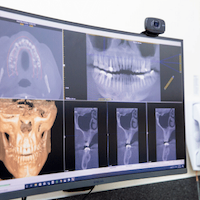Can Having Bad Oral Health Affect An Entire Country?

Can Having Bad Oral Health Affect An Entire Country?
If it does, it sure makes ignoring and neglecting our oral health sound selfish.
Although pretty much everything we do is selfish: we’re Homo sapiens. We’ve made an entire world for ourselves that way. In our particularly Homo sapiens way, now we’re destroying it.
If having bad oral health turns out to be a selfish act in terms of your country, then a screen shot of 21st century humans is of a baby-pouting milk face selfie taken from the perfectly tilted angle of a selfish-stick.
Statistically, a person will take 25,000 selfies in their lifetime.
For some that’d be a month. Twice that for the lead-up, wedding day and honeymoon; then back to 25,000 for the first six months of pregnancy.
Whatever the numbers it’s prevalent enough to have to have created its own words, terms and tips by the multi-millions, so unfamiliar were we, really, with the idea of surrounding the self with self-conscious and self-confident images of self: that place from whose eyes we more comfortably see out of, rather than look into.
Or have others see themselves in them. However it works, they’re images into eternity – which used feel a much more expansive place. At the moment it seems overcrowded with the overwrought ideas of inadequate self, beautified, brightened, eye-bagged and enlarged.
Rather similar to mummification it seems; straws up noses and brain matter are certainly involved in both – only it seems one of them holds the belief that brain matter doesn’t much matter.
Maybe it’s part of the whole Homo sapiens thing; that power of the Queen on the chessboard that suggests nothing really matters. Anyone can see. Nothing really matters.
Nothing really matters that isn’t about me, it seems.
Buddhism tells us that everything is connected to everything. That nothing happens in isolation. That the self is an illusion because it can never be separate from its environment.
Christianity tells us that everything is connected to everything tells it in a way that certain people understand while others don’t and sometimes there’s a change along the way. That making better choices for ourselves and therefore the world by a connecting with other believers, is the pêle-mêle of the human interpretation of unconditional love in God’s secret hierarchy.
Physics tells us that everything is connected to everything and that everything is quantum mechanics. That the universe is vibration fields of space, all completely interconnected and in continual communication, where distance and time are of no consequence. That everything between one end of the universe and the other is the grand movement of the cybernetic loop of this vibrating space. That in truth, everything in the entire universe is indeed not only connected, but absolutely so, without division or boundary.
In that way, Buddhism tells us that everything is connected to quantum mechanics, which tells us in an adult voice about the lovable scampishness of Buddhism.
Astronomy tells us that everything is connected to everything. That the activities of cosmological objects determine the earth cycles of day and night, of the seasons of the year, of tides and climate and food and human survival. That unlike most icy, flinty asteroids, Psyche – orbiting between Jupiter and Mars – is a gold, iron and nickel mother lode. With an estimated value of about $US700 quintillion – which equates to around $US92 billion per person worldwide.
Economic tells us that everything is connected to everything. That if everyone on earth had $US92 billion and even with successful digs having plummeted by 85% over the last decade, we’d still be mining gold. Right down to the US Geological Survey’s last estimation of the remaining gold our planet has it at 518,000 tonnes: about a 6-metre cube of the stuff.
Since the recordable history of mankind, we’ve already used 244,000 tonnes of it. And not being alive this time between 1280-1337 I didn’t know who Mansa Musa was either. Osman Ali Khan, Asaf Jah VII (1886-1967) had so much gold that he used the $US95m Jacob Diamond as a paperweight.
That’s 184-carat lunacy that can’t have Psyche psyched.
To decide whether or not bad oral health can affect an entire country, it’s useful to see what good dental health does.
To do that, the pre-supposal has to be that good dental health comes from accessible and affordable, up-to-date oral preventatives, treatments and specialists; countries with political leanings unlike those encompassing a capitalistic in-your-face stance about the mouths of their citizens.
Seems that those nations feel that with various programmes and schemes, they’re handling the rest of the human body, so you’re on your own as far as your oral health goes.
And that’s despite all the studies and evidence of healthy gums, teeth and soft oral tissue being clear indicators for the minimisation and possible onset of many chronic diseases.
… on which countries spend their peoples’ money basically managing. Generally not curing: treating and managing and researching and applying long-term collected data.
Like the links between gum disease, tooth decay, a mounting body of evidence that suggests improved funding for dental care would reduce overall healthcare costs.
Japan introduced universal health insurance in 1961.

In 2023, tooth extraction with subsequent implant, bridge or denture is the equivalent in yen of between $US38.50 and $US693.00.
Depending on the severity, treating periodontal disease costs between $US230.00 and $1150.00.
Japan is considered the smartest country in the world. The average citizen has an IQ of 106.48.
South Korea has offered free dental care for foreigners on nominated days in its acceptance that maintaining a good status of dental health and ergo general wellbeing, outweighs any immigration or financial limitations.
It too, has people averaging high intelligence with its IQ score of 102.35, and it has a 97.97% literacy rate.
Roughly $US1 billion is annually spent in US hospitals alone, treating preventable dental pain and the immediate stresses this causes for the body whether it be infection or obstruction.
It’s already known that periodontitis is both an influencer and assistant in the progression of several systemic diseases.
Cancer, type 2 diabetes, respiratory disease, cardiovascular disease, cancer, adverse pregnancy outcomes, cancer, neurodegenerative disease, digestive disease and cancer doesn’t even complete the cavalcade of calamity that results from not going to the dentist.
Economic consultants for healthcare delivery industries and systems have the view that the reason to keep oral care separate from medical care is the fundamental difference in the nature of the risk; and a complex deferability of care.
If there’s such a thing as double Dutch mansplaining, that is surely it.
Further economic reasoning suggests that should you be suffering a heart attack you’ll go to Emergency; dental issues often appear like they can wait, which is unfortunately common. The claim that the problem may deteriorate but that it’s not necessarily life threatening needs heavy revision.
It needs to be – nothing is ever life-threatening if it’s treated; many, many things are if they’re not. Scratching yourself on a barbwire fence is not life threatening. Tetanus is.
So it’s a ridiculous argument.
Why we agree to believe this tosh like a mass psychosis event could have something to do with the recent studies confirming deleterious effect gum disease has on mental health.
Science has also proven that chronic, low-grade inflammation is a stealthy killer. In fact medical research estimates that as much as 90% of illness and disease is triggered by the body’s stress responses.
And there’s empirical evidence that tooth loss interferes with memory function each one holds a vital neurological connection.
Almost 20% of the world population suffers from periodontal disease – which is more than a billion people.
Two billion more have cavities in their second teeth.
Add to that 160,000,000 adults worldwide missing teeth – and multiply it all by the financial and employment bias that destroys confidence and life prospects that is proven to affect the increased likelihood of Alzheimer’s and dementia being your elderly dinner companions.
We know from multitudinous studies what an intensely negative precursor poor oral health is, in terms of long-term physical and mental resilience and balance.
Unwell populations are less innovative, motivated and less dynamic. People under stress don’t perform well. Resultant symptoms constantly and frequently need treating, which is a costly business for homelands and their homies.
And yet more than half a billion children on the planet have cavities in their first teeth.
That’s as out there as the Captain of Industry psyche to plunder and pillage Psyche.
Having bad oral health not only affects an entire country, it affects as far as 497,000,000 kilometres from earth. There it orbits the Sun between Mars and Jupiter, awaiting the day its rich cargo is mined, a percentage of which is dedicated to dentistry.
The content has been made available for informational and educational purposes only. Plaza Dental does not make any representation or warranties with respect to the accuracy, applicability, fitness, or completeness of the content.
The content is not intended to be a substitute for professional personal diagnosis or treatment. Always seek the advice of your dentist or another qualified health provider with any questions you may have regarding a dental or medical condition. Never disregard professional advice or delay seeking it because of something you have read or seen on the Site.
Services we mentioned:
Related Articles
Tooth Sensitivity: Just Needs Sensitive Toothpaste, Or Symptom of Bigger Problems?
‘Sensitivity’ is the new buzzword in dentistry. Dentists are more sensitive than ever before to the needs of their...
Propolis Can Help Manage Gingivitis And Periodontal Disease
Propolis. Bee glue. The resinous tree, branch and leaf raw materials of certain plants that bees collect to make the...










